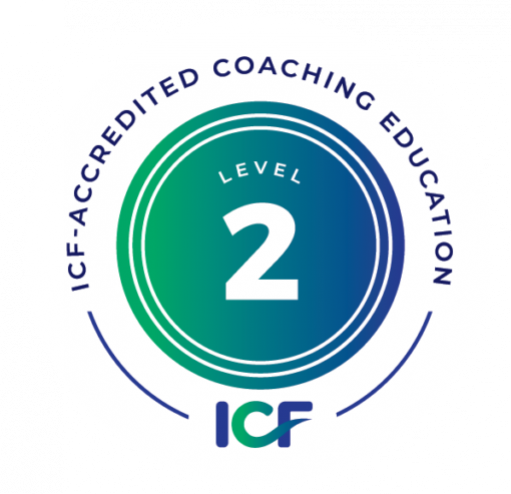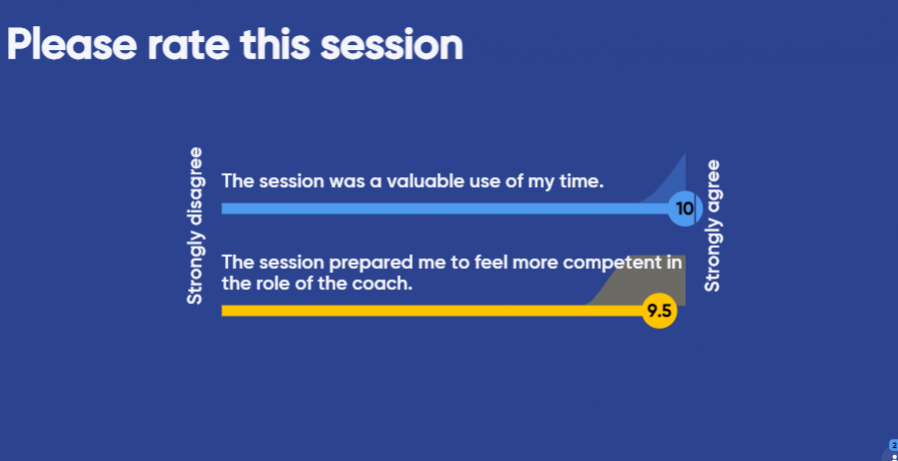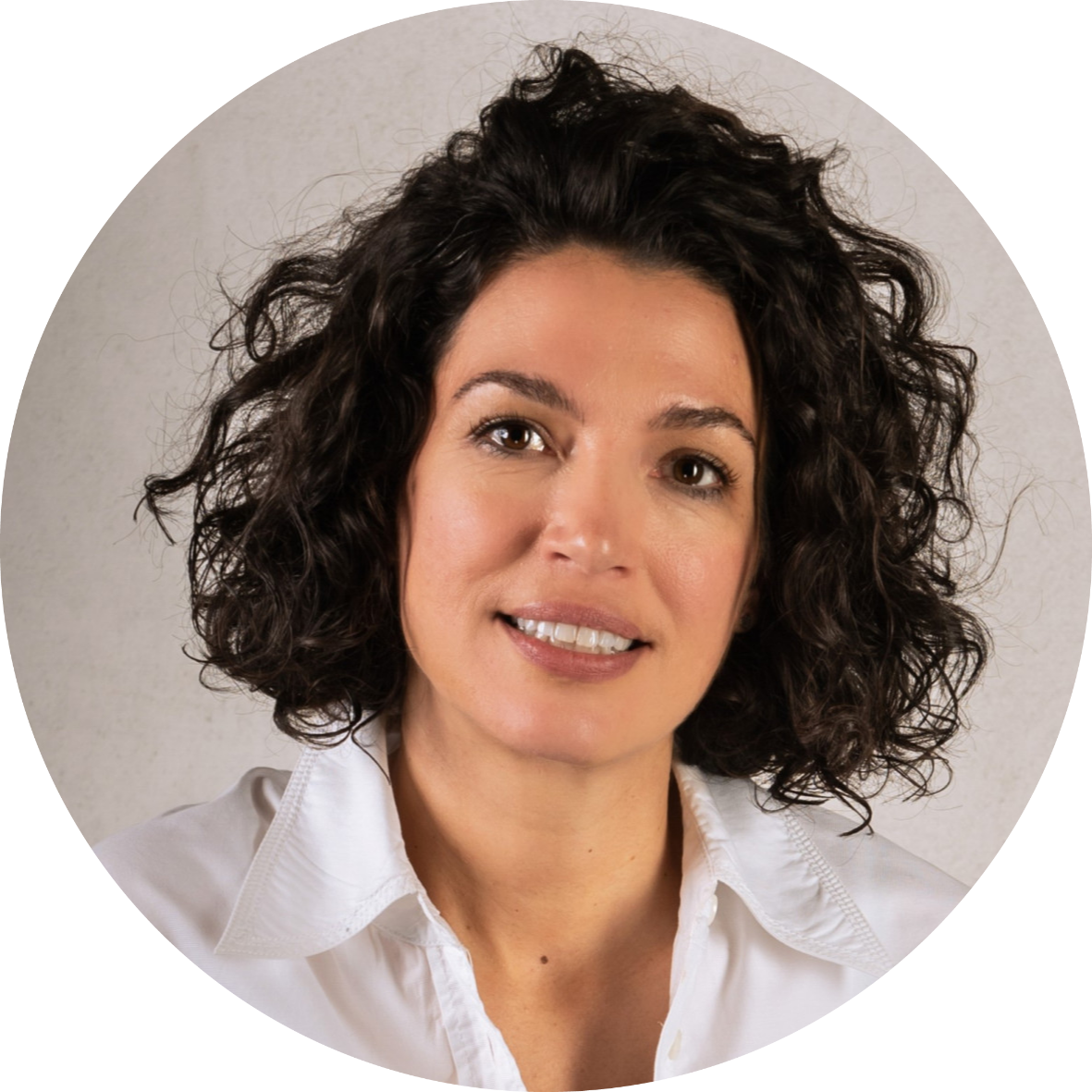Constructivist Coaching for Organization: Advance Diploma

Why CCO?
CCO gives you widely recognized coaching certification and access to coaching community.
65 training hours
Interactive, engaging with a supportive community of over 200 coaches that has been growing for the past 10 years.
every Tuesday
Autumn: Date to be announced
5.00 - 7.00 PM CET
Live online
Your personal coaching journey with a support of ACC and PCC coaches.
Our review
- Koucing centar is the first in the region education provider who got ICF level 2 accredited education
- 16 ACC and PCC trainers
- 9 mentor coaches
- 5 performance evaluators
- 400+ alumni
- 75 alumni of ICF mentoring sessions
- 10+ conferences, including the biggest ever - Wellbeing Summit
- 830+ certified training hours delivered
- 60+ hours of mentoring sessions delivered
- 12 PSM and 5 PSK accredited alumni from Scrum Master Academy
- 75 corporate clients
- 19 team members
For whom is this program?
The course is ideal for leaders, HR i L&D professionals, agile practitioners, consultants and those interested in advancing their knowledge of individual and team coaching in organizations. Ideally for those who already have some level of coaching experience and knowledge.
Can you find yourself in some of this situations?
1. You are looking for accredited education that will lead you to ICF PCC.
2. You are a coach looking to expand and enrichen your knowledge of coaching.
3. You already have some coaching hours but missing some hours to get ICF PCC.
4. You are wondering about connection of coaching with: agile, lean, mental wellbeing, conflict...
5. You are looking for an education that will help you gain a new perspective of various situational coaching implementation possibilities.
Working language: English
Most common alumni titles
- Scrum Master
- Learning and Development Specialist
- HR Manager
- Agile Coach
- HR Director
- Senior Scrum Master
- People Operation Professional
- HR Professionalist
- Psychotherapist
Program details
Each module has 2 iterations of 2 trainer contact hours each with relevant asynchronous learning in between. (One module lasts 2 consecutive weeks - 2x2h)
In total the training provides you with 40 hour synchronous learning + 25 hours asynchronous learning (peer, group and self-paced learning).
Our corporate clients

Testimonial:
For me the most valuable thing, besides the wealth of practical experience shared by the trainers, was the exchange of knowledge and experience within my cohort - the connection and feeling we were all facing similar hurdles really made me more assured of my knowledge and skills
Agile Coach, Project Manager
Example of how our alumni grade CCO during the course sessions:

Content of this program:
Module 1
Professional Coaching for Lean Culture
Basic principles of Lean: Continuous improvement, Employee involvement, Customer involvement. How professional coaching helps improve lean culture? Why coaching addresses well challenges in creating Lean culture?
Module 2
Agile and Complexity Leadership Coaching
Agile coaching & ICF coaching. Agile manifesto What includes role of both? What is the connection? What is the role of professional coaching in agile leadership? Cynefin framework. Coaching vs other interventions. What is constructivist approach to agile? How to apply ICF core competencies in agile environment?
Module 3
Mental Wellbeing Coaching
What is the meaning of mental wellbeing? What is MW coaching? How coaching addresses mental wellbeing improvement? What is the connection? What is Mental Wellbeing Continuum? What's the line between coaching and psychotherapy?
Module 4
Coaching in & for Remote & Hybrid Workplaces
Specifics of coaching online? What are specifics of remote & hybrid teams? What are the benefits of coaching hybrid & remote teams?
Module 5
Coaching for Creativity and Innovation
Implicit theories of creativity and innovation. Raising awareness of our own beliefs about creativity and innovation. How creativity can help in different aspects of the coaching process?
Module 6
Growth Mindset & Coaching Mindset
How growth mindset and coaching mindset work together? Why growth mindset matters for coaches? What is the connection between the concept of growth mindset and the coaching mindset ?
Module 7
Leader as Coach
Idea of coaching as a leadership style. The difference from other leadership styles. How core competencies support leaders as coaches? Difference from other team development modalities.
Module 8
Diversity and Inclusion Coaching
Concepts of diversity, inclusion and bias. Types of bias. importance of partnering when coaching for diversity and inclusion.
Module 9
Coaching for Change Leaders
Compliance vs. commitment strategies for leading change. Participation. Accountability. Resistance to change. Coaching as a way to create change without resistance.
Module 10
Conflict Coaching
How coaching may help reframe conflicts in dyads or teams? Elements of systemic approach to coaching: future-back and outside-in principles. Appreciative coaching for conflict in the workplace.
Reflection in action. Analyzing feedback provided by assessors on observed coaching sessions around ICF core competencies. Submit a reflective journal for instructor feedback. Reflection in the community that has more than 200 participants. Responding to video content, asking questions, summarizing personal learning points and sharing commitments.
REFLECTIVE PRACTICE, HOMEWORK
ACTIVITY
Peer coaching
Peer coaching around scenarios or real examples. Optional: recording a peer coaching session and submitting for observed coaching session. You can use this as your obligatory 3 recordings of coaching session to be counted as OCS and to get written feedback from assessors.
Designing coaching sessions, collaborative analysis of case studies and reading assignments.
SMALL GROUP PROJECTS
After this program you will be able to...
Learn how to support others to set goals
One of the mock questions as part of the coach knowledge assessments (link) is what is a necessary part of a coaching session. The tempting answer may be creating an action plan, but the correct answer is: an agenda identified by the client. In a way, setting goals early on in the session serves as a sort of an “anchor” for anything that will happen further in the session. Interestingly, research about coaching effectiveness (link) also points to a finding that coaching clients in general improve their goal setting skills. All this means: we really need to start with a goal. Good coach training should make that very clear and up-skill the participants to be fully ready to set goals for the overall coaching process and for the particular session. For leaders, these goal setting skills naturally translate into the skill for co-creating the meeting agenda which is clear and outcome focused.
Level up your rapport building skill
Great working relationships are at the core of the coaching process. Coach training programs should therefore aim at up-skilling the general rapport building skill by supporting a mindset of openness, curiosity and willingness to understand client’s internal frame of reference. From our understanding and appreciation of other’s perspective naturally comes trust and psychological safety. Coach training programs should aim to expand the current mindset of participants so they are able to connect with a truly diverse base of clients. For leaders, these skill translate into the general ability to support and work with diversity in teams and organizations.
Listen as a pro
Listening is more than hearing. It is our ability to receive various cognitive and emotional messages, to process them and respond to them in real time. Good listening skills are most frequently recognized as being great at summarizing. When our summarizing of what we have just heard add on the initial client’s understanding of the situation, we have really started to listen as a pro. In that case listening becomes already an intervention. Good coach training should aim at removing any limiting mindsets that interfere with our ability to listen. In the beginning of coach training that is usually a mindset of thinking what to say next while at the same time listening to what the client is sharing. For leaders, exceling in listening comes as a great way to develop a dialogue and improve overall collaboration.
Think systemically
As coaches we sometimes tend to have the “incapsulated” perspectives that we are alone with our clients in a virtual or real coaching room. However, when coaching we are also (indirectly) working with a variety of visible or invisible stakeholders. Systemic thinking in coaching reminds us that the room is always full of stakeholders and that we need to address their interests, goals, aspirations and well-being too. Systemic thinking also reminds us that there is no “schema”, script or algorithm in coaching and that we need to adopt a mindset of coaching as a truly creative process. That means bringing our whole creative being to the coaching conversation, improvising, challenging, tolerating uncertainty and not knowing. Good coach training should allow the participants to experience at least some of these instead of comforting them that simplistic models are enough – real world practice very quickly dismantles that! Great leaders also benefit from systemic thinking especially in leading through complexity.
More and more frequently we are seeing coaching dominantly being delivered in and for remote or hybrid workplaces. That is why coaches need to be comfortable coaching online, whether individuals or teams. Modern coach training programs model these online coaching skills, online facilitation and use of digital coaching tools. Benefits for leaders are immense and translate into general ability to collaborate better in online environments, have more effective online meetings or 1-1s.
Ask questions that shifts mindset
In coaching we use question as an expression of our general attitude towards exploring and discovery. We tend to think that powerful questions need to sound “fancy”, but in reality powerful questions usually build on great listening. Sometimes the most powerful questions are pure “joining words”, which further push the client to structure their thoughts. For example, if a client says it would be great to get some feedback on his or her ideas, we could insert a couple of joining words, such as: “because?”, “by whom?”, “in order to?” and so on. In short, power of our questioning often comes in form of simplicity. In general great questions share one thing in common: they are able to shift mindsets in individuals or teams. Great coach training programs level up these questioning skills by putting participants in various challenges on what to ask next, followed by immediate feedback on those skills. For leaders, asking powerful questions means being able to reach the mindset of their co-workers and collaboratively shift it to contribute to the overall organizational success.
Create change without resistance
One unofficial definition of coaching could be “creating change without resistance”. What it means is to be able to partner in all aspects of the coaching process: co-create, not impose, not expect to be followed but rather create the willingness to explore together. Great coach training programs should first change the mindset that some clients are “uncoachable” and then shift the way we usually think about resistance. When we truly partner with clients, we never get into the situation to experience resistance as coaches. Creating change without resistance is also a generic leadership skill, that is of great importance whenever leading implies inspiring new mindsets and behaviors.
Recognize and apply ethical practice
We need acknowledge the client’s best interest comes first. This applies to confidentiality and privacy matters, translates further to organizational reporting of coaching effectiveness, as well as the best practices on when to say as a coach: “Listen, it seems I am not helping you towards reaching the goal we set for this coaching process”. Great coach training offers simple and clear advice on best practices regarding ethics in coaching. And leaders also benefit from these insights too.
Understand how coaching creates values.
In the end we need to acknowledge that coaching is not a panacea. It doesn’t work for everything and at some points may be completely useless. Great coach training makes it clear when to coach and when to mentor. What situations require consulting rather than coaching. Or when it is appropriate to refer a client to psychotherapy. As internal or external coaches we need to be able to understand when and how coaching is creating value and when that is just not the case.
This ICF Accredited Coach Training Programme is ideal for individuals who are passionate about elevating their coaching practice. It provides you with 65 hours of accredited coaching training. You will also gain access to an online learning platform to track your progress and access course content.
This education is right for you if you are looking for:
- Expert faculty
- Personal transformation
- Practical tools
- Supportive community
- ICF Accreditation
- Expanding your capacity as a coach
- Developing your coaching skills
Requirements:
This course is for everyone who wishes to become a Professional Certified Coach and make coaching part of their career. There are no pre-requisite to be able to participate in this course, but as this is an advanced course it is preferably aimed for those who already have some level of coaching experience and knowledge.
ICF Core competencies taught on CCO:
- Demonstrating ethical practice
- Embodying a coaching mindset
- Co-creating the relationship
- Establishing and maintaining agreements
- Cultivating trust and safety
- Maintaining presence
- Communicating effectively
- Listening actively
- Evoking awareness
- Cultivating learning and growth
After completing the CCO:
You will feel secure in the coaching process, practice coaching tools and techniques in a variety of organizational contexts and provide solutions to organization’s challenges.
Team of trainers

Jelena Pavlović,
PCC
Founder of Koučing centar, Trainer, Mentor, Assessor, Coach

Milena Nikolić,
PCC
Partner of Koučing centar,
Trainer, Mentor, Assessor, Coach

Tijana Karaklić,
PCC
Partner of Koučing centar,
Trainer, Assessor, Coach

Marijana Račić, PCC
Trainer, Assessor, Mentor, Coach

Bogdan Doroslovac, PCC
Trainer, Observer, Coach

Milica Lubinić, ACC
Trainer, Observer, Coach

Katarina Bjelović, PCC
Trainer, Observer, Mentor, Coach

Traner, Observer, Coach

Milica Prijović, ACC
Trainer, Observer, Coach
STAndard PACKAGE
Constructivist Coaching for Organization: Advanced Diploma -
65 h
1 320 EUR
+ VAT
- 20 sessions of 2 hours
- asynchronous learning
FULL PACKAGE
Full Coaching Training - 125 h
2 500 EUR
+ VAT
- 16 sessions of 2 hours - Integrative Constructivist Coaching Diploma
- 20 sessions of 2 hours -Constructivist Coaching for Organization: Advanced Diploma
- asynchronous learning
zero to icf package
3500 EUR
+ VAT
- Full coaching training - 125 h
- 2 x Performance Evaluation
- ICF Mentoring - 10h
Payment plans
In line with our slogan ‘Coaching for all’ we are quiet flexible with the payment conditions for individuals paying for their own education and will customize them to your needs and possibilities.
Cancellation policy: If you cancel your participation after paying a number of installments, we keep the amount paid, and you get the opportunity to participate in one of the following cycles of the program. If we have to cancel the training for justified reasons (e.g. trainer's illness), we will refund the registration fee you paid.
Enrolment path with us

